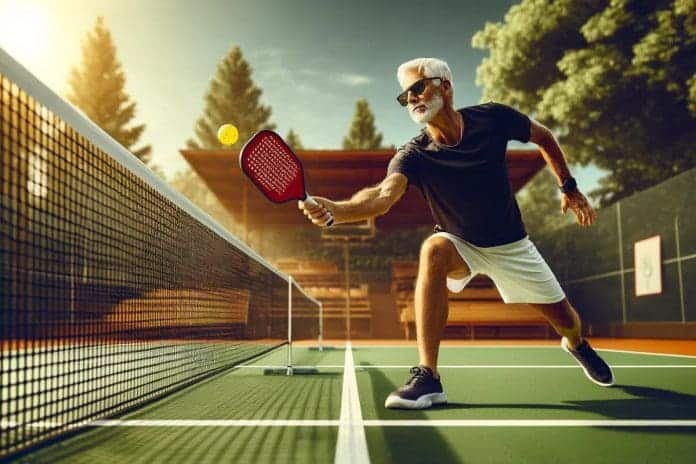6 Bold Ideas to Reshape Pickleball: As pickleball continues to grow in popularity, discussions about its future have sparked a range of opinions. Despite the sport’s widespread appeal, several issues remain unresolved. Here are six proposed changes that could significantly improve pickleball, though their implementation seems unlikely in the near term.
1. Adopt the Bounce Serve in Pickleball
The ongoing debate over service rules in pickleball is a familiar topic among enthusiasts. Critics argue that the volley serve has become too dominant and difficult to regulate. A straightforward solution would be to mandate the bounce serve, as seen in similar sports like padel and racquetball. This change could simplify enforcement and balance the serve’s impact, though such a shift might face resistance from those accustomed to the current rules.
2. Transition to Rally Scoring in Pickleball
Rally scoring, where points are awarded on every serve, is a well-established format in sports such as volleyball and squash. Advocates for this system argue that it would streamline play and enhance the game’s pace. While it’s anticipated that rally scoring will eventually be adopted, the timing of this change remains uncertain. Embracing this format could address some of the current scoring debates and improve the overall flow of matches.
3. Revamp the Governing Structure
The current governance of pickleball, with USAP and UPA operating separately, has faced criticism for inefficiency and lack of cohesion. A proposed solution involves dissolving both organizations and establishing a new governing body with effective oversight.
Key figures with a proven commitment to the sport could be appointed to ensure proper management. Another suggestion is the introduction of a pickleball commissioner to oversee the sport’s administration, although this idea is unlikely to materialize soon.
4. Merge APP and PPA
The APP and PPA leagues serve distinct roles in professional pickleball, with APP acting as a feeder system to the more prominent PPA. A merger or formal cooperation between these leagues could enhance player development and streamline scheduling. Such a structure would allow the APP to function as a developmental league, supporting the PPA’s growth and maintaining a clear pathway for emerging talent.
5. Adjust MLP Frequency
The Major League Pickleball (MLP) has introduced an exciting element to the sport but has also led to player fatigue due to its frequency. Reducing MLP events to twice a year, with significant drafts and tournaments, could alleviate scheduling conflicts and maintain enthusiasm. This change could enhance the overall experience for players and fans, balancing the excitement of MLP with the demands of the professional season.
6. Regulate Paddle Performance
The rapid advancement of pickleball paddles has raised concerns about the potential for the sport to become overly dominated by power plays. Implementing a new standard to slow down paddle performance could preserve the game’s strategic elements. Announcing such a standard well in advance would give manufacturers time to adapt, though handling the legal and technical aspects of this change could be challenging.
Community Perspectives
In addition to these proposals, some community members emphasize the importance of maintaining a unified, player-focused approach to the sport. They demand a strong players’ union and a universal skill rating system to ensure fair competition and safeguard against commercial influences. Preserving the sport’s core values—its ability to foster connections and promote civil behavior—remains a priority for many.
News in Brief: 6 Bold Ideas to Reshape Pickleball
As pickleball grows, six proposed changes aim to enhance the sport, though their implementation is uncertain. Suggestions include adopting the bounce serve to simplify enforcement, transitioning to rally scoring for a faster game, and revamping the governing structure to improve efficiency. Merging the APP and PPA leagues could streamline player development while adjusting MLP frequency might reduce player fatigue.
Regulating paddle performance could balance power and strategy. Additionally, maintaining a unified, player-focused approach and preserving the sport’s core values are highlighted. These proposals reflect ongoing efforts to refine pickleball and address current issues within the sport.
ALSO READ: Pickleball Boosts Parkinson’s Patient’s Mobility: Larry Graves’ Story

